Musician: JONATHAN BYRD & THE PICKUP COWBOYS
Video: “It Don’t Make Sense”
JONATHAN BYRD & THE PICKUP COWBOYS FEATURED AT BLUE ROCK’S COOL NIGHTS 21 THIS THURSDAY, NOVEMBER 4
Jonathan Byrd & the Pickup Cowboys will be featured at Blue Rock aLive! Cool Nights 21 livestreaming concert series—this Thursday, November 4. They are musical gunslingers, vaudevillian hucksters and old-fashioned tent revivalists. Between heartbreaking ballads and heart-lifting sing-alongs, the Cowboys entertain and get audiences involved in the show.
Byrd is a preacher’s son, a Gulf War veteran, and an award-winning songwriter from Chapel Hill, N.C., known for literary, outsider songs that have become campfire favorites.
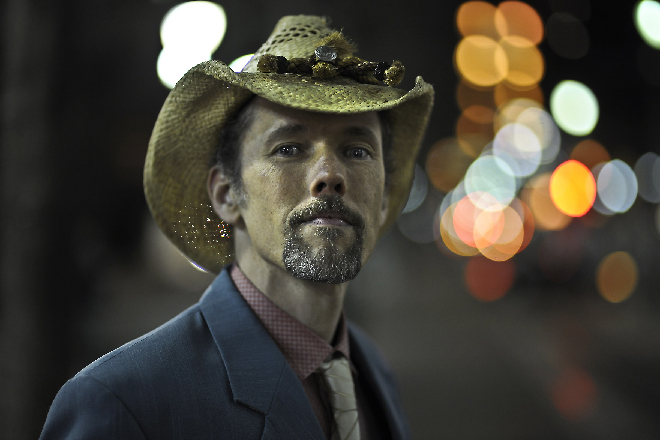
In 2003, Byrd was among the winners of the New Folk competition at the Kerrville Folk Festival. He is best known for his narrative tales of love, life, and death in America. He recently covered Geoff Mack’s “I’ve Been Everywhere” (a song recorded by many including by Hank Snow, Lynn Anderson, Asleep at the Wheel and Johnny Cash). To get an idea of his sense of humor, watch his Covid-19 version.
Jonathan Byrd paints a landscape with lyric and melody that reveals his truth—which finds a place in the listener’s heart, allowing it to simultaneously sigh and breathe. We talked with him about his songwriting and especially two of the powerful songs from their most recent album—with drums by Austin McCall and guitar, saw and mandolin by musical Renaissance man Johnny Waken—where they share often-missed, always poignant tales of small people who make the world such a big place.
Check out his livestream this Thursday, November 4, at Blue Rock Texas—where innovation, quality and creativity are evidenced in concerts produced with broadcast quality audio-video from their renowned Texas room—streamed straight to you. Inquire about a Season Pass ($105) which lets you can have a seat in the house—by sending in your headshot. What’s unique is they will place your headshot on a seat, so you will literally be sitting in the room. Go to: https://bluerocktexas.com/events
JONATHAN BYRD Interview
with M Music & Musicians magazine publisher, Merlin David
Please tell us the story behind one of the songs you plan to play at Blue Rock’s Cool Nights 21 (for your November 4 performance).
“I Should Have Died” is the first song I’ve written for my latest project, Song Miners. On Friday November 5, on my YouTube channel, I will release the first in a series of videos that documents my entire process of writing a song—from initial idea to final recording. It’s difficult to remember how I arrived at a certain lyric or melody. So, I decided to start filming myself as I write—like Naked and Afraid, the songwriting edition. (Laughs) Fans can watch me struggle with ideas, try new things, celebrate breakthroughs and finally decide whether or not the song is done. In keeping with the extreme vulnerability of the project, the first song “I Should Have Died” is very raw and honest—a song of thanks for somehow surviving all the bad decisions I made in my life: “It’s still too soon to say today is not my day. I might get lucky.”
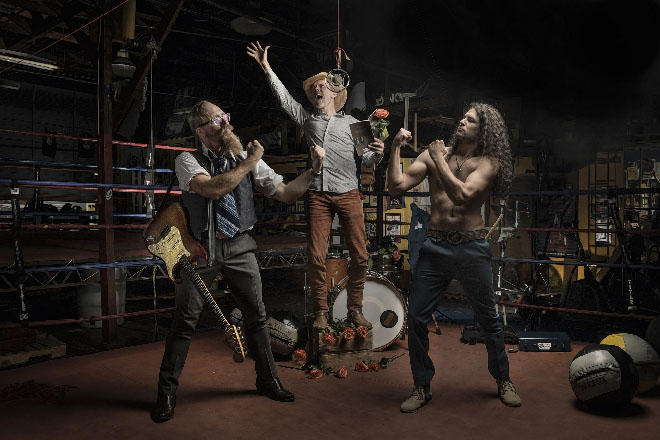
Tell us about one of the songs on the latest album Jonathan Byrd & the Pickup Cowboys.
“It Don’t Make Sense” was not a song we had played out much. It’s a very introspective piece about recovering from a broken relationship. Honestly, it began with an exercise I call “folded ideas.” From the lyric: “Pussyfoot, a cat in heat, dinner’s cold luncheon meat. A butcher’s block on Lonely Street, I’m so tired and I can’t sleep. It don’t make sense to me.” Pussy/cat, heat/cold, dinner/luncheon, meat/butcher, block/street, lonely/tired, tired/sleep. Each idea folds into another as the line unfolds. Of course, this is just a technical exercise, and the point is that it leads to something meaningful and relatable to the human experience. From the first full verse, I understood what the story was about and I was able to continue. Because I set up such a difficult scheme, it took me months to write the rest. On the album, Paul Ford plays a cello solo, which became very meaningful only a week later as he was diagnosed with brain cancer. Paul passed away about a year after the recordings.
Jonathan Byrd paints a landscape with lyric and melody that reveals his truth— which finds a place in the listener’s heart, allowing it to simultaneously sigh and breathe.
What did you learn about yourself after recording this album?
I played electric guitar for the first time in a very long time, and was able to stretch out as a producer. I even added some instruments in my home studio after the big studio recordings. This gave me the confidence to produce entire recordings at home. “I Should Have Died” was produced, recorded and mixed entirely at home.
Tell us about the powerful song “We Used to Be Birds.”
My ex and I were together for 18 years, and I used to call her baby all the time: “Hey, Baby!” or “Hey Baby, I need your help with this.” She grew up in upstate New York and they didn’t call each other baby, but she warmed up to it after a while—and she’d call me “Baby.” We had a son, and when he started to talk—every now and then, he’d call one of us “baby.” (Laughs) It was so funny because sometimes we’d be in different parts of the house and we’d say “Baby” (echoes) “Hey! Baby”—just call out to each other, not for any reason—just to say ‘here we are.’ And it reminded me of the way birds would wake up in the morning and they’d start singing and they’d call to each other—almost like they were just checking on each other. I think that’s where the idea had its beginnings.
Who originally inspired you to write songs?
I knew that ‘real’ bands on the radio always had their own songs. I didn’t know where they came from, but I knew it seemed important for musical acts to have their own songs. Wedding bands and bar bands could play other people’s music, but people didn’t usually win Grammys for that. So, when I was a teenager, I started writing songs for myself and my bands. I’m glad I didn’t know whether my songs were good or bad back then—the experience of writing made me a better writer.
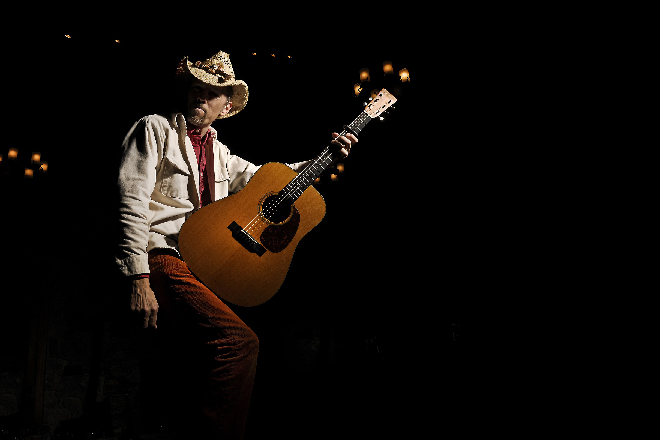
What is your creative process for writing songs?
I try a new door every day. I explore a country. I sing like a different person. I stare at a tree for hours and imagine it as a melody. I black words out of ads in flight magazines to make poetry. Sometimes I call another songwriter.
What songwriting tip would you like to offer?
It takes a certain amount of bravery—not to be clever. You need to ask yourself, ‘Am I making this better or am I just trying to show off my chops.’ I think it’s Johnny Mercer who said “It takes more talent to write music, but it takes more courage to write lyrics.” Don’t give up. You have to process fifty tons of rock to get an ounce of gold. Not every mine is profitable. Think of it as good, driveway gravel. Keep digging. Keep learning. If you’re stuck, go for a walk. Read it out loud. Make a deadline. Put it out to the world. I’ve never met a writer who was secure in their talents. Professionals are just desperate enough to sell their unfinished work.
Is there a songwriting principle you follow?
Think about threes. A priest, a rabbi and a duck walk into a bar. The duck is different, and you know it’s different because you established a pattern with the two previous items. Three is the minimum number of items it takes to establish a pattern and break it. The blues do it idiomatically: 1. The thrill is gone. The thrill is gone away. 2. The thrill is gone. The thrill is gone away. 3. You know you done me wrong, and you’ll be sorry someday. You can do it with melody, too. Vivaldi’s “Spring” is a great example. Threes hide everywhere in art/photography, cinema, theater and more. Look for them. Threes are a great tool.
How do you keep song ideas fresh?
I keep the process fresh. Just like Country songs have a pre-chorus, I have a pre-process—a process where I create a process. (Laughs) A natural way for me to write is to start playing the guitar and it just comes together. I used to instinctively do that—but now it’s part of my deliberate songwriting process.
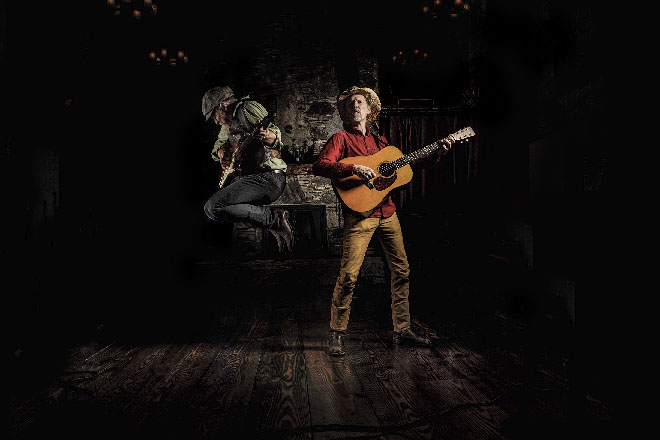
Top 5 Musicians or Songwriters who inspired you?
David Rawlings and Gillian Welch have each contributed a whole new line of artistry to the world. Their influence is undeniable. Tom Waits. Anais Mitchell. Doc Watson. Led Zeppelin.
What are your Top 5 favorite albums?
Dark Side of the Moon (1973) — Pink Floyd
Mule Variations (1999) — Tom Waits
Bone Machine (1992) —Tom Waits. Let’s just count Tom Waits as one album.
Time (The Revelator) (2001) — Gillian Welch (produced by David Rawlings)
Nebraska (1982) — Bruce Springsteen.
Nine Pin (2016) — Kaia Kater. This gave me goosebumps and made me cry. Everything you want from a record. She was twenty-two, played clawhammer banjo and writes these vivid, almost frightening songs that challenge tradition from the inside. It’s the way I imagine southern music to have sounded before records were made. Now it’s post-genre but the effect for me is time travel. It’s beautiful and naked and painful.
Tom Waits ‘Mule Variations.’ And ‘Bone Machine (1992)’ Let’s just count Tom Waits as one album. Gillian Welch and David Rawlings ‘Time the Revelator.’ Bruce Springsteen’s ‘Nebraska.’ Ooh, number five is so tough because it’s your last chance, right?
My friend Kaia Kater just put out a record that gave me goosebumps and made me cry. Everything you want from a record. It’s called ‘Nine Pin.’ She’s twenty-two, plays clawhammer banjo, and writes these vivid, almost frightening songs that challenge tradition from the inside. It’s the way I imagine southern music to have sounded before records were made. Now it’s post-genre but the effect for me is time travel. It’s beautiful and naked and painful.
What instruments/equipment are essential?
My voice is my most important instrument. I play the guitar too. I love my Martin D-18 Golden Era. It’s a reproduction of a 1934, with a few things they learned since then. Martin is such a great company. Have you ever been to their factory in Nazareth? It’s like Geppetto built a particle accelerator. Wooden clamps a hundred years old and robots in cleanrooms. It’s like winemaking or baking, where you have two hundred years of various technologies all working simultaneously to produce this masterpiece of our culture and history.
Any other guitars?
By contrast Jack Benedict at Slowbird, a great luthier in Winston-Salem, made a white oak guitar for me in his basement. I watched Jack make it as he posted pictures on his Facebook page. I lusted after it. He didn’t tell me it was mine until he walked into a show and handed it to me. Blew my mind! It’s as good as any guitar I’ve played. We gave it a year to settle in, and then tweaked it. So now it’s even better. I took it on the road. I love guitars, essentially. They all have their individual fingerprint. I don’t care so much about which guitar I use. I’ve shown up to festivals and conferences without a guitar. Why would you bring one? There are five hundred guitars there already.
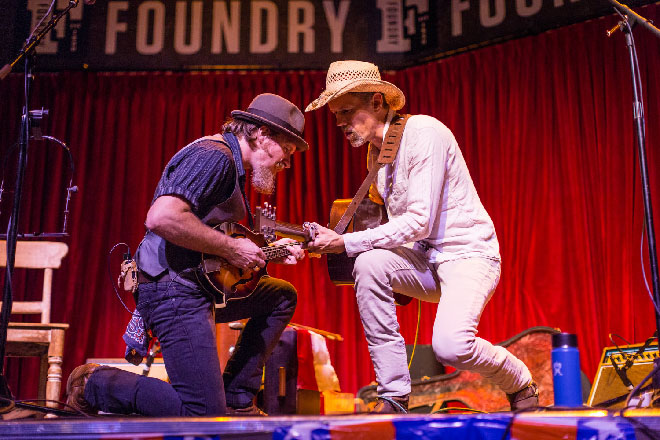
What kind of gear do you use?
The thing I’d be lost without is my pedal board. I’ll fly to Denmark and play my friend’s guitar, but I take my rig with four things: A Boss tuner pedal at the top, which also works as a mute. Second, a Carl Martin parametric EQ. It’s Danish—hand-wired. It’s like using an EQ on a studio console. You can really sculpt a pickup sound. It took me fourteen years to find a pickup sound I could live with. I still can’t listen to most electrified acoustic guitars. It’s just the worst of both worlds. The Carl Martin with a K&K did it for me. Third, a TC Electronic Flashback delay pedal for a little bit of slap. The pickup-direct sound suffers from a lack of dimension, the same thing that makes it stand out in the mix. A pickup always sounds out front, but that’s not how an acoustic guitar sounds naturally. When you listen to Johnny Cash or Hank Williams, you barely notice the acoustic but you’d miss it if it was gone. It’s a percussion instrument. The ‘Flashback’ helps me get the acoustic out of your face and back in the room, where it feels more natural. Fourth, I have a Fire-Eye Red-Eye boost pedal, handmade in Austin. I went into South Austin Music and lined up about a dozen volume pedals and the Red-Eye. The Red-Eye was the only thing that didn’t change my tone. I didn’t want the constant variable of a volume pedal. I just want to click a button and turn the guitar up a few decibels so I can push a solo or some light fingerpicking. The whole pedalboard puts me in control of my sound. We don’t travel with a sound tech. We mix ourselves from the stage with dynamics and our own gear. As long as we have a decent monitor mix, the sound person can turn the faders up and go have a drink.
Why is your voice so essential to you?
I lost my voice once, and won a songwriting competition anyway. Months after, people who discovered me at that show were coming to hear me and expecting a jagged whispery voice. I guess just because something is pretty—doesn’t make it interesting.
Tell us a “pinch me” moment when you thought “Wow, this is really happening to me!”
I always want to be the least talented musician in the studio. (Laughs) I’m the songwriter—it’s my record. These musicians are generally better than me. One of the great gifts of being a songwriter is that musicians are always looking for people who have songs to play with. I love it when some of the greatest musicians take notice and sit in with you and your band—like Jerry Douglas at a bluegrass festival—and suddenly he’s playing on your song.
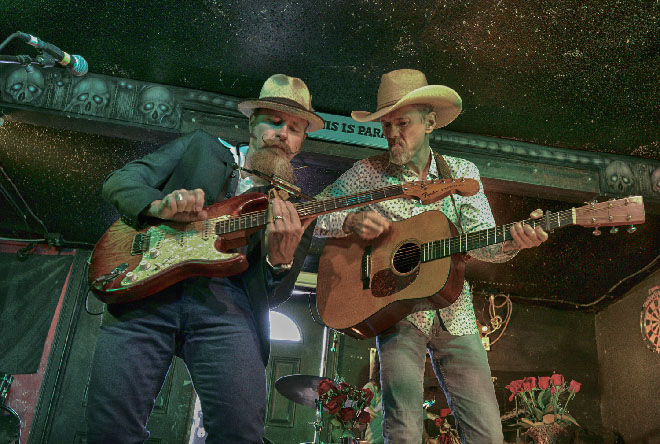
How do you remain hopeful in this strange and unique socio-political time?
I’m a hopeful person. I don’t look at the news much, and I block people who always talk about politics and social issues on social media.
What’s so special about performing at Blue Rock?
It’s rare to see a vision so incredibly well realized. Everybody has their big idea—for their great American novel. (Laughs) But Billy and Dodee were able to do it. More than how great the place is—it is the story you can feel when you’re there—of how that idea came to life.
Where can new fans get more info and stay updated?
I share everything with my patrons on Patreon. They get the first look and listen at everything—discounts and more. I am also songwriting-focused on Patreon. If you’re curious about songwriting and/or want to write in a motivated community, join me at: https://patreon.com/jonathanbyrdmusic
www.JonathanByrd.com
https://instagram.com/jonathanbyrd
https://twitter.com/jonathanbyrd
https://facebook.com/jonathanbyrdmusic
https://youtube.com/jonathanbyrdmusic
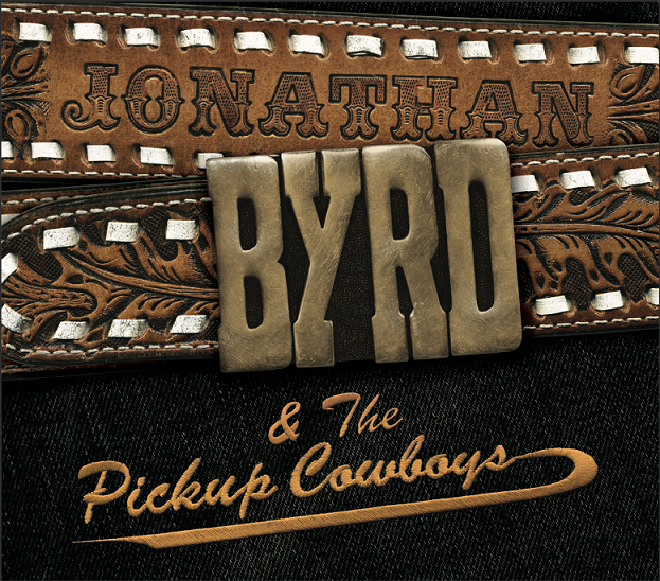



comment closed